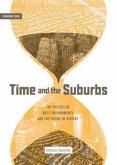This study critically analyzes the paradigms and practices of planning in Egypt since 1952. Based on primary and secondary data, the study argues that under Nasser, plans often diverged from their blueprints and revealed the myth of 'technical objectivity' that underpinned the planning industry. Under Sadat, the systematic exclusion of planners from decision-making apparatuses accompanied 'profit-opportunism' in favor of private interests. The study then demonstrates the decline of planning under Mubarak and its emergence into a 'special purpose vehicle' in service of real estate developments skewed toward resource and privilege concentration in the hands of a few thus further exacerbating uneven spatial morphologies.
Hinweis: Dieser Artikel kann nur an eine deutsche Lieferadresse ausgeliefert werden.
Hinweis: Dieser Artikel kann nur an eine deutsche Lieferadresse ausgeliefert werden.








